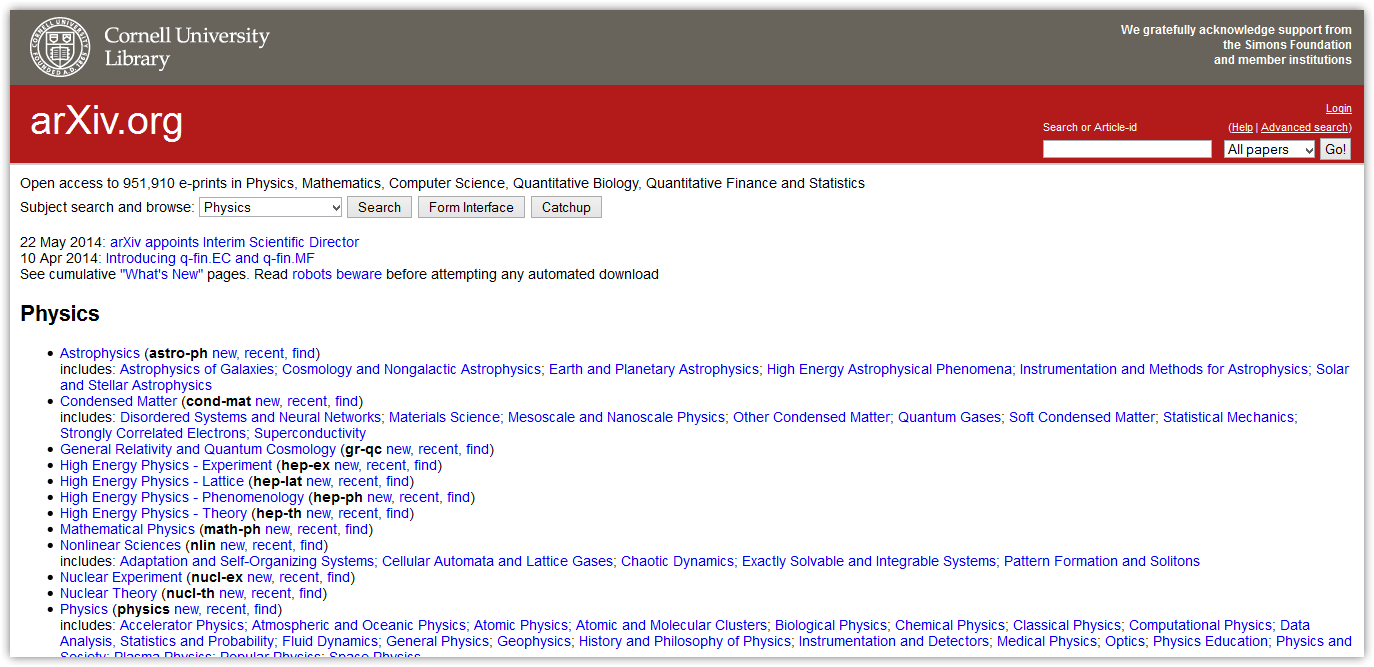
Text of a talk given to the COPIM end-of-project conference: “Scaling Small: Community-Owned Futures for Open Access Books”, April 20th 2023 Open access publishing has always had a difficult relationship with smoothness and scale.

Text of a talk given to the COPIM end-of-project conference: “Scaling Small: Community-Owned Futures for Open Access Books”, April 20th 2023 Open access publishing has always had a difficult relationship with smoothness and scale.

Yesterday, the preprint repositories bioRxiv/medRxiv and arXiv released coordinated statements on the recent memo on open science from the White House Office of Science and Technology Policy. While welcoming the memo, the repositories claim that the ‘rational choice’ for making research immediately accessible would be to mandate preprints for all federally funded research.
I’ve just uploaded ‘The Politics of Rights Retention’ to my Humanities Commons site: https://hcommons.org/deposits/item/hc:52287/. The article is a preprint of a commentary currently under consideration for a special issue on open access publishing. Abstract This article presents a commentary on the recent resurgence of interest in the practice of rights retention in scholarly publishing.

This week, the White House Office of Science and Technology Policy (OSTP) declared 2023 its ‘Year of Open Science‘, announcing ‘new grant funding, improvements in research infrastructure, broadened research participation for emerging scholars, and expanded opportunities for public engagement’. This announcement builds on the OSTP’s open access policy announcement last year that will require immediate open access to federally-funded research from
Cross-posted on the Dariah Open blog as part of their series on research assessment in the humanities and social sciences In his lecture entitled ‘The future of the profession or the university without condition’, Jacques Derrida makes the case for a university dedicated to the ‘principle right to say everything, whether it be under the heading of fiction and the experimentation of knowledge, and the right to say it publicly, to
On October 25th I’ll be giving an online talk at University College Cork for their event on New Horizons in Open Access Publishing.
Cross-posted on the University of Cambridge’s Unlocking Research blog. In the USA last Thursday, the White House Office of Science and Technology Policy announced its decision to mandate public access to all federally funded research articles and data.

Reforming research assessment and culture is a hot topic in higher education, particularly how these issues relate to research funding. I discussed the HELIOS initiative in my last post, which is a funder-led approach to incentivising open science practices in North American tenure and promotion guidelines. Now, in the past week, EU science ministers have agreed on a plan to facilitate coordinated reform of research assessment processes.

A recent article in The Scientist discusses the newly launched Higher Education Leadership Initiative for Open Scholarship (HELIOS). Composed of ‘leaders’ from over 75 US colleges and universities, HELIOS is committed to incentivising open science practices in order to make research more research more ‘inclusive, transparent, and efficient’. It is an approach designed to reorient assessment mechanisms towards open science practices,

This post makes a case for universities investing in people and processes for reviewing research in house before publication. This idea has no doubt been proposed before and is probably already a feature of some academic institutions, but I wanted to clarify here why I think it would benefit academic research. High-energy physics research is often held up as the archetypal open science discipline.

I’m becoming increasingly interested in the academic literature on predatory publishing, especially the differing definitions and argumentative strategies these articles use to illustrate the problem of poor-quality publishing.